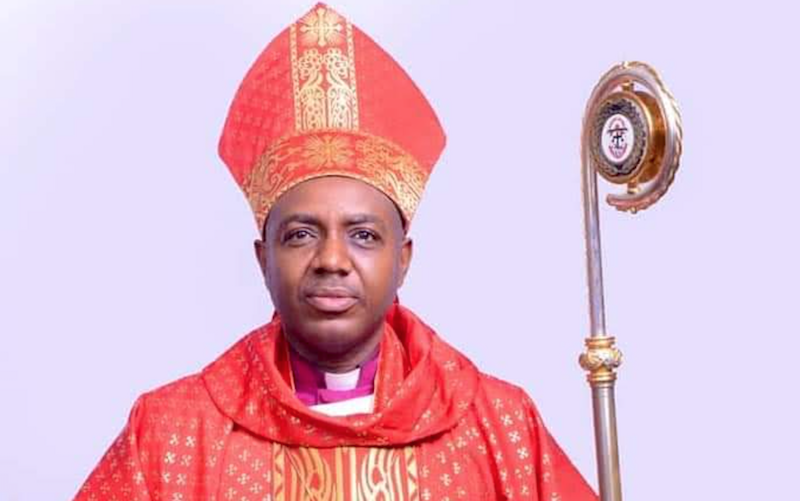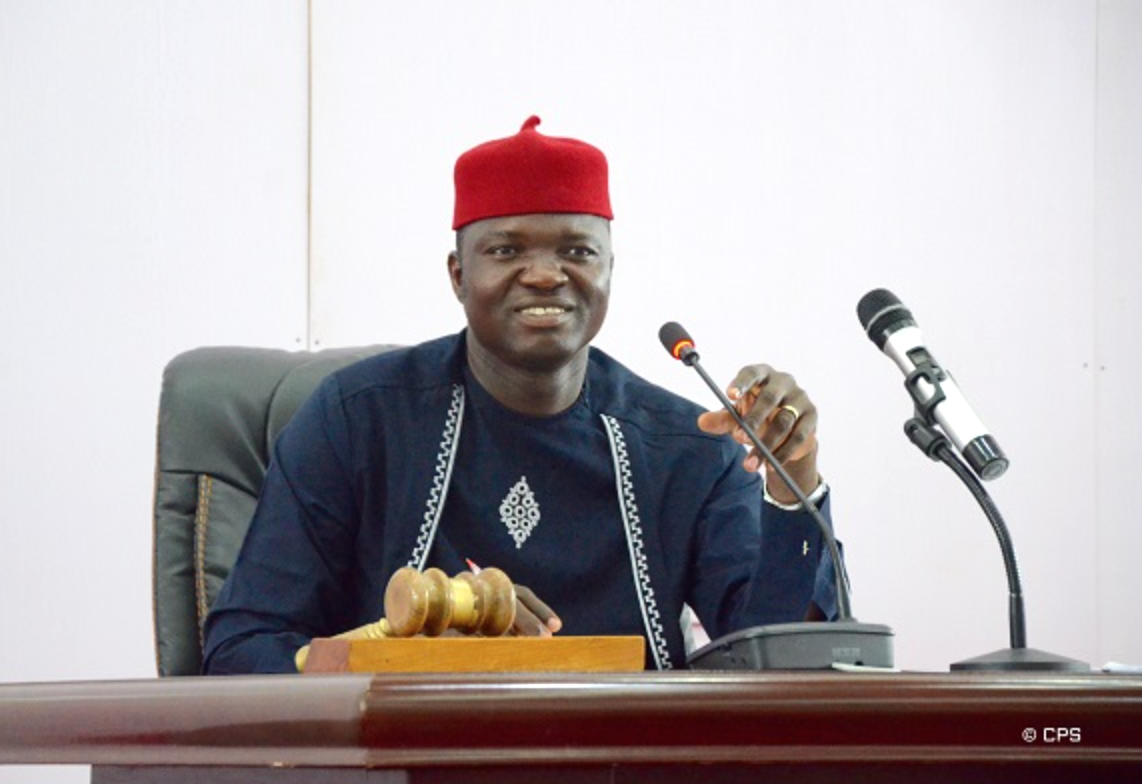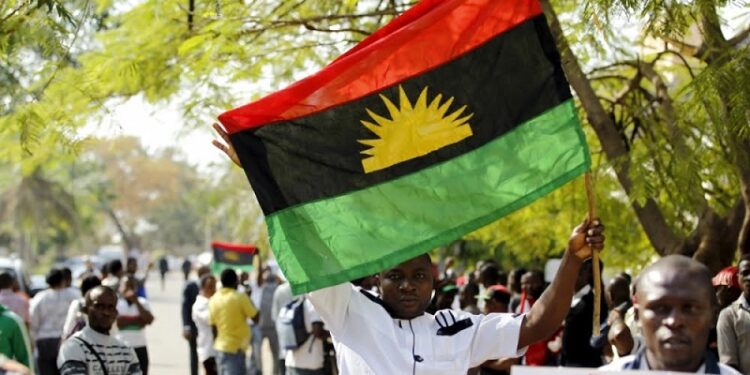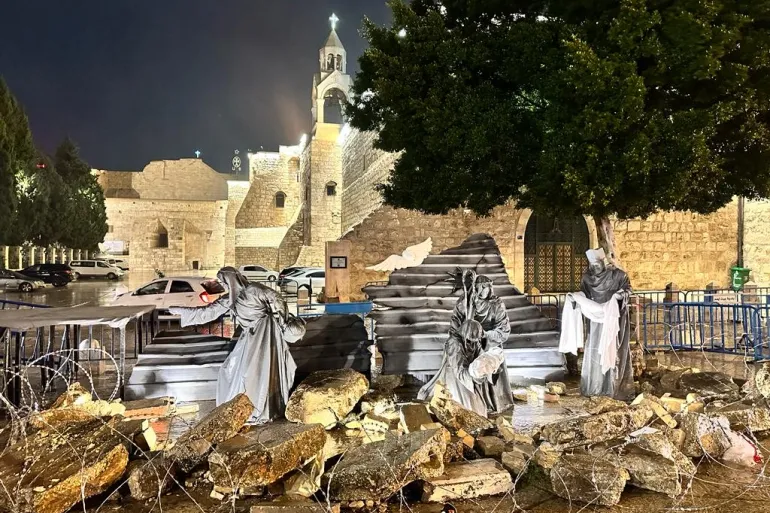A combination of the wars in Eastern Europe and the Middle East, which have negatively impacted the global economy, has turned 2023 Christmas, which is supposed to be a season of joy for the nearly 2.4 billion Christians across the globe representing 31% of the 8 billion population of the world , into a period of gloom and doom.
Although African countries are not at war against each other in the manner that it would have significant implications, aside from the war between the two Sudans—the mother Sudan and its offshoot South Sudan—as well as the Ethiopian-Eritrean conflicts that have been ongoing for a very long time, Africa is bearing the brunt of the ongoing wars between Russia and Ukraine in Eastern Europe and the one pitching Israel against Gaza in the Middle East regions of the world.
To put into perspective the grim reality that has led to a subdued xmas across the world, particularly in the war-torn regions and, by extension, Africa being ravaged by climate change , let us first of all underscore the issues that have triggered the crisis in Eastern Europe, resulting in a subdued Xmas by highlighting the underlying factors responsible for the current crisis situation with a view to helping find viable solutions .
In light of the unfolding horrors of war, how can there be merry Xmas in Ukraine, which is being pounded daily with some of the deadliest arms and ammunition (short of nuclear weapon) by the Russian army?
The war by Russia against Ukraine, which is a breakaway nation from the defunct United Soviet Socialist Republic, USSR, that is about to enter its second year, is a war that has practically pitched Western Europe and the United States of America against Eastern Europe, led by Russia.
Somehow, it is a proxy war of sorts, as it is gradually becoming a re-enactment of the Cold War days when there was the threat of Russia overrunning Europe, prodding the US and Canada to form an alliance with some Western European countries to ward off the Russian threat leading to a polarized world in what is today known as North Atlantic Treaty Organization, NATO.
Although the nuclear race aspect of the dark days of the erstwhile Cold War is now dead as it looks like it can no longer be resurrected, it was initially feared by world leaders when Russia first attacked Ukraine back in February 24, 2022, which is two months shy of two (2) years, nevertheless,the trail of death that the Russian army is leaving in the much smaller, and of course less powerful Ukraine, is quite noxious.
Given the antecedents of the reputation of Russia during the Cold War days, the Western world, as defined by members of the Northern Atlantic Treaty Organization, NATO, rose in unison in support of Ukraine, since it is a relatively small country being aggressed by a giant country, Russia, that was at one time the leader of one half of the world when it was polarized into two equal halves of east and west.
Since the purpose of this intervention is not to apportion blames or argue about which side of the ideological divides driving the conflicts between Russia and Ukraine and Israel and Gaza is wrong or right,but to bring the world’s attention to the consequences of war mongering, the focus of the piece is restricted to the ensuing atmosphere of despair across the world, especially in Africa and indeed in Nigeria.
As had been proven, the consequences of war are not just on the citizens of the theatres of the war as we have witnessed in Ukraine where at least 10,000 civilians, including more than 560 children,have been reported to have been killed so far in a war triggered by Russia and which is about to clock its two years milestone; and Gaza where about 20,000 souls are believed to have been lost since October 7 when Hamas militants invaded and murdered about 1200 and kidnapped as many as 400 Israelis in a surprise attack during the celebrations of festival of happiness and Israel launched an unprecedented and extremely deadly reprisal attack currently receiving wide spread condemnation across the world.
But the negative fallouts of the wars have not only negatively impacted the antagonists and protagonists, but they have complicated the hunger and starvation levels even in Nigeria.
That is because, incidentally, our country is at the same time undergoing economic reforms to unshackle and reposition the nation for growth and prosperity. But in the interim, the masses are experiencing severe hardships as the nation’s economy experiences its worst inflation rate, estimated to be in the region of 27%, a massive unemployment rate estimated at about 55%, (4.3% NBS rate ) and a debt burden in excess of N88 trillion.
It is a combination of all these negative factors that has resulted in the emasculation of the youth population and the Nigerian masses in general, who are currently experiencing a lot of misery as reflected by a rise in the cost of transportation, that in some instances have quadrupled, and the general cost of living increasing by multiple folds, which is one of the reasons 2023 Xmas is subdued in our beloved country, Nigeria.
Focusing first on the war in Eastern Europe, the immediate negative effect of the Russia-Ukraine war is the shortage of grain supply to the world from Ukraine, as farming has been impossible. Therefore, Ukraine, which is a net exporter of grains to the world, has been unable to sustain supply, especially to Africa and the Middle East, which depend on the war-torn country for the commodity essential for baking bread.
Evidential of the scenario above is a recent report by the Council of the EU and the European Council that has concluded that:
“Due to the war, Ukraine, a leading grain exporter, has seen a dramatic drop in its exports. This has resulted in major food security concerns for millions of people around the world. The actions of the EU and the United Nations have helped curb the price rise, but the outlook remains difficult.”.
It is interesting how a war in faraway eastern Europe is having such a profound aftershock in Africa and indeed Nigeria, where the price of bread has gone out of the reach of the ordinary man owing to the hike in its price that has skyrocketed, therefore exacerbating the hunger and starvation in Africa and Nigeria.
This is also being accelerated by climate change, as evidenced by the fact that 2023 has been declared the hottest in modern times, resulting in drought and other forms of socioeconomic challenges manifesting as misery for mankind, particularly on the continent of Africa and Nigeria, to be specific.
Since diesel fuel is mainly sourced from refineries located in Eastern Europe, its shortage owing to the war in Ukraine is also producing negative consequences for the economy of Africa, and by extension, Nigeria, since most of the countries on the continent lack steady supply of public electricity power, hence the heavy dependence on diesel fuel to power plants in factories and homes.
There was also the threat of Russia blocking the sea route for shipping goods across the Black Sea, resulting in the disruption of global logistics patterns, which has also crystallized into poverty beyond the Ukrainian region into Africa, which is paying a very high price for the war in faraway Ukraine.
Also in the wake of the war, the United Nations had to negotiate with Russia to continue to allow the export of grains out of Ukraine, but the agreement brokered by Turkey had suffered several setbacks with dire consequences for the people of Africa and the Middle East, whose staple food is comprised mainly of grains procured from Europe.
“Before the war, around 90% of Ukraine’s agricultural exports were transported by sea. After the start of the war, the Russian military blocked Ukraine’s Black Sea ports and brought exports to a virtual standstill.”
Also, as a report by Rand Corporation indicates: “The shock of the war was one of the main factors that had slowed economic growth in 2022 to just 3.1 percent, and why the OECD projected it to slow to 2.2 percent in 2023.”
The war, the report found, has had the greatest impact on Europe’s economy, where growth in 2023 is projected to be just 0.3 percent.
Europe being Africa’s foremost trading partner since the Europeans were the major colonists of the continent, the snowball effect of the economic burden besetting them has negatively impacted the continent of Africa.
Enough has been written and discussed about the war in Eastern Europe.
To gain a more holistic insight into the effects of the two ongoing wars in the world, on Africa and, to be more specific,Nigeria, it is pertinent we also examine the consequences of the war in the Middle East between Israel and Gaza, which commenced on October 7 and has just attained a three-month milestone.
With her mission to utterly eliminate Hamas, the militants that have been governing Gaza since 2007 and which have vowed to wipe out from the face of earth , the nation of Israel (which it accuses of occupying the ancestral land of the Palestinians) and have therefore been doing all it could to achieve the objective, the Jewish state, which is surrounded by Arabs and Muslim countries, has been on edge and therefore somehow very aggressive since the country was formed by an act of the United Nations in May 1948.
The Institute of Security Studies (ISS) reports that given the boom-bust nature of many African economies, which rely heavily on commodities, any wild swings in these prices would have a pronounced effect on the balance of payments and fiscal positions. Global energy flows, particularly developments relating to the Strait of Hormuz, will be of concern, given its centrality to global energy supply and its emergence as a strategic target.
It further argued thus:
“In this context, the World Bank warned on October 30 that the Israel-Hamas conflict could trigger a global economic shock”, including oil prices rising to $150 a barrel and millions going hungry. As a result, “Policymakers will need to be vigilant”, says World Bank chief economist Indermit Gill.
As the report further noted that “If the conflict were to escalate, the global economy would face a dual energy shock for the first time in decades—not just from the war in Ukraine but also in the Middle East.”
Dwelling further on the risk of the cascading effect of the consequences of the war, the report also raised the fear that “higher-for-longer energy prices would also raise global inflationary pressures, leading to tighter monetary policy and a more pessimistic financial market reaction.”
Those concerns are presently manifesting like the infamous Nostradamus predictions, and in the manner that Exxon Mobil predicted several years ago, the current
severe climate change, which scientists believe is presently the greatest threat to mankind.
As earlier stated, it is these existential realities around the globe that have conspired to make humanity and indeed Nigerians victims of poverty in dimensions that have not been experienced in the past in our country.
According to the ICC report below, Africa and particularly Nigeria are more susceptible to collateral damage from the lsrael-Gaza war.
“Social tensions have risen in countries with a large mix of Muslim, Christian, and Jewish populations, such as Nigeria. Africa’s most populous country has seen successive pro-Palestine protests, some deadly. Dynamics in Gaza may also raise terrorism risks across numerous regions as groups use the conflict to justify attacks, shift public sentiment, and drive recruitment into insurgent groups.”
Fortunately, Nigeria as a nation has escaped the negative fallout ignited around the world by similar events in the Arab world in the past.And that can be attributed to two factors:
The first is the economic reforms currently being undertaken the administration of President Bola Tinubu, which are underpinned by the removal of subsidies on the pump price of gasoline and the naira that was hitherto pumped up with foreign exchange earnings from crude oil and gas sales.
Since the cessation of the subsidy regime, the naira has been in a free fall as it has been trying to find its equilibrium. A galloping inflation akin to the type experienced in Germany after the World War, during which it was reported that the price of a cup of tea could change before finishing drinking it, has gripped Nigeria, and it is constricting the country like a boa constrictor,despite strenuous efforts at taming it by the current administration.
The removal of subsidies has caused so much trauma and misery that the masses are literally too burdened with trying to survive than to have the luxury of time to engage in the luxury of protesting against events happening in faraway foreign land in the manner that they did in the past.
The second can be attributed to the dexterity of the security agencies, particularly the Directorate of State Security Services (DSS), which has been very proactive.
Relatedly, there is also this hunch that rather than the Muslim-Muslim ticket of the president and the vice president in 2023 being Muslims, which had initially created anxiety, the combination is proving to be a unifying factor rather than a dividing one, as had been feared.
The initial anxiety might have been a sign of the fear of the unknown since the concept had never been tested in Nigeria’s political space.But the assumption that all is well and will remain well may be too hasty, but the early signs suggest that
President Tinubu and his team have been very sensitive to religious sensibilities; hence, there has been peace and tranquility with respect to not magnifying religious differences.
To us in Nigeria, apart from inflation triggered by the removal of subsidies on premiums for motor spirit and PMS and the devaluation of the naira to about a quarter of its value when the immediate past president Mohammadu Buhari took over as president of Nigeria in 2015 and the naira was exchanging at N260/$1 to the current atrocious rate of N1,200/$1 under Tinubu’s watch,the biggest burden weighing down on the average Nigerian this Xmas is scarcity of petrol and the naira notes.
The Central Bank of Nigeria’s (CBN policy of redesigning the naira introduced before the 2023 general elections saw the withdrawal of old notes and the replacement of them with newly redesigned notes.
Approximately one year following the introduction of the policy and the subsequent Supreme Court intervention, which mandated the simultaneous use of both old and new currency notes, the common citizens were spared from the arduous task of acquiring cash.
However, the intentional decrease in the volume of naira currency notes in circulation by CBN , ostensibly aimed at expediting the transition to a cashless society, continues to inflict significant damage on the Nigerian economy.
Accessibility to cash for the general populace which is also a fall of not printing enough new notes ,has become a privilege reserved solely for those capable of repurchasing it at the elevated prices established by currency vendors—an emerging business trend.
This current malady in our country, that is, more often than not, the unintended consequences of public policies in which there are not enough critical thinking being invested before implementation, always manifests as a new problem replacing the old.
Although Nigeria did not cancel Xmas as has happened in Bethlehem, lsrael , Nigerian Christians are in no less dire straights as their counterparts in lsrael Gaza/Palestine, and the rest of the world, such as Ukraine, where misery has overshadowed that is supposed to be a season of joy.
While I would have liked to extend heartfelt Christmas wishes on this special day, the reality is that the festive spirit is subdued.
Unfortunately, a significant number of people worldwide, especially the majority of Nigerians, may not have the opportunity to partake in the traditional joy of relishing a meal of rice and chicken, which was once an annual delight.
This subdued atmosphere of Xmas necessitates the creation of a new vocabulary to aptly capture the socio-economic challenges faced by my compatriots. Given that President Tinubu has promised long-suffering Nigerians better days ahead in the new year, which is part of his renewed hope agenda, it may be proper to end this intervention on a promising note by urging Nigerians to be steadfast in looking ahead for a better tomorrow.
As the pontiff, Pope Francis, lamented the world has become , “where the Prince of Peace is once more rejected by the futile logic of war, by the clash of arms that even today prevents him from finding room in the world.”
As the leader of the Holy Sea, Pope Francis reminded the world of the current reality: “Our message every year on Christmas is one of peace and love. But this year, it’s a message of sadness, grief, and anger in front of the international community about what is happening and going on in the Gaza Strip.”
In alignment with the pope, my prayer is that by next Xmas , peace will reign supreme all over the world, and Nigerians will have started reaping the benefits of the ongoing socioeconomic reforms.
Magnus Onyibe,an entrepreneur,public policy analyst, author,democracy advocate,development strategist,alumnus of Fletcher School of Law and Diplomacy at Tufts University, Massachusetts, USA, and a former commissioner in the Delta State government, sent this piece from Lagos, Nigeria.
To continue with this conversation and more, please visit www.magnum.ng.









